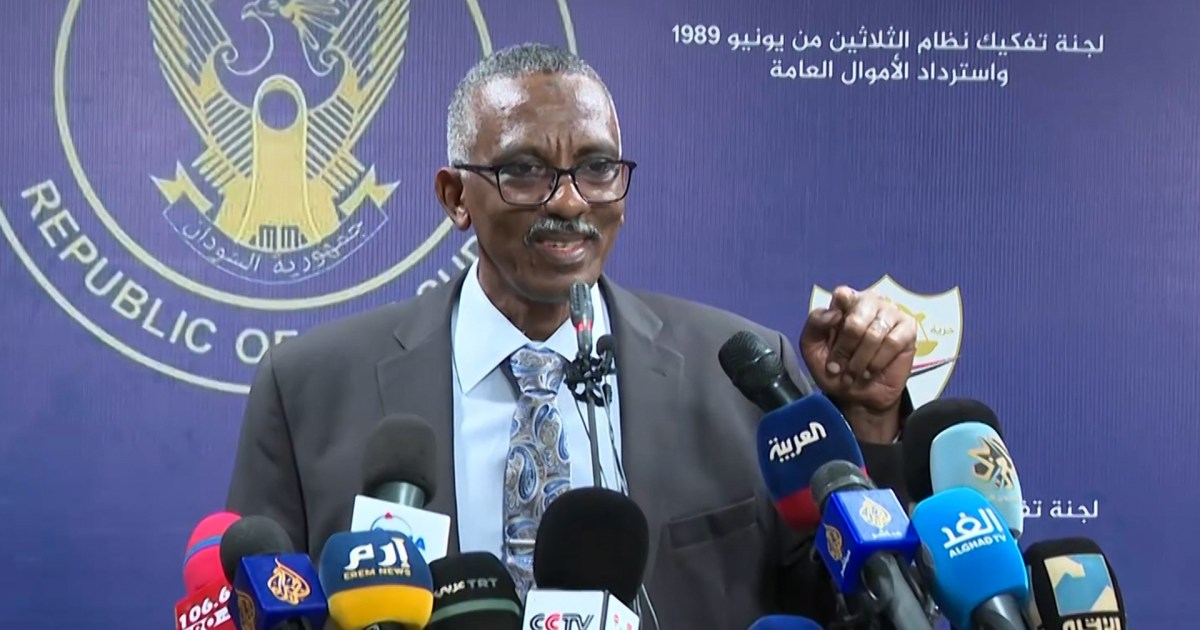The Sudanese judiciary ordered the reinstatement of 11 officials after they were dismissed by the Empowerment and Anti-Corruption Committee, while in Khartoum it was announced the formation of a ministerial committee headed by the Prime Minister to discuss with the military about the protests in the east that led to the disruption of roads and ports.
Yesterday, Tuesday, the Appeals Department of the Supreme Court of Sudan issued 11 decisions to return citizens to their jobs, who had been dismissed earlier under decisions issued by the Empowerment Removal Committee, Anti-Corruption and Money Recovery.
The Court's Appeals Department - headed by Muhammad Babiker Abu Sbeiha - canceled 11 decisions of the aforementioned committee stipulating the dismissal of judges, advisors, prosecutors and employees of government institutions, most notably the judiciary, the ministries of justice and oil, the National Fund for Social Security and Pensions and other institutions.
In the text of his decisions, Abu Sbeiha referred to the invalidity of the decisions of the Empowerment Removal Committee and all that resulted from them, calling on the authorities entrusted with implementation to initiate the implementation of the judicial ruling by returning the dismissed to their institutions and ministries.
For his part, the representative of the Defense Committee for the Dismissed, former Adviser Abdullah Darf, said, "We received a judicial ruling for 11 appeals that I submitted out of a total of 300 appeals with the defense body, and there are many requests from other defense bodies, and we are awaiting the rest of the results of the legal appeals to return the dismissed persons before." Empowerment Removal Committee to their Institutions.
He continued, "The decisions of the Appeals Department are final in accordance with the law of the Empowerment Removal Committee and are not subject to appeal, and these are 3 messages that the Sudanese judiciary is authentic, non-politicized and independent."
He considered that these decisions are a message to every oppressed person that the Sudanese judiciary is his refuge.
For his part, a member of the Empowerment Removal Committee, Wajdi Saleh, said that the Appeals Department, which issued the decisions, did not even ask his committee for reasons or files.
He added, "We are aware of all plans, and we will proceed with the project of dismantling politically and legally, even in the judicial and judicial bodies that obstruct the project of building a state of law."
He pointed out that the Empowerment Removal Committee respects the judiciary, works to enforce the law and respects the judiciary, but it is "against the remnants and their presence in the state apparatus until the transitional period is put on the right track."
On January 11, more than two thousand people in Sudan submitted appeals to the judiciary in order to return them to their jobs, after they were dismissed by decisions of the Empowerment Removal Committee, according to the head of the legal committee for the dismissed.
In 2019, the Empowerment Removal Committee issued decisions to terminate the service of hundreds of workers in state institutions, including leaders, advisors, judges and diplomats, on the grounds that they were affiliated with the regime of ousted President Omar al-Bashir.
Find solutions
In another matter, the Sudanese Cabinet decided - yesterday, Tuesday - to form a committee headed by Prime Minister Abdalla Hamdok, to contact the military component of the Sovereignty Council in order to agree on practical solutions to the issue of the east of the country.
The Cabinet said - in a statement - that it had discussed the issue of the east of the country and the closure of the port and the road linking the Red Sea state with the rest of the states by a tribal council, and it reiterated the justice of the issue of the east and its priority as it is linked to the political, social and development issues of the citizens of the east of the country.
The Supreme Council of the Beja Opticals and the independent verticals had said - earlier - that the closure of the ports and the road between the capital, Khartoum and the strategic city of Port Sudan does not include medicines or the transfers of international and international organizations, and the tribal council - which leads the protests in eastern Sudan - held the government responsible for any medicine crisis in the country.
And since last September 17, the council has closed all ports on the Red Sea and the main road between Khartoum and Port Sudan, in protest against what it says is the marginalization of development suffered by the eastern regions.
The Sudanese government signed a peace agreement with armed movements, and instead of the eastern path included in this agreement, the tribal council calls for holding a national conference for eastern issues that will result in the approval of development projects in it.
Since August 21, 2019, Sudan has been living in a transitional period that is scheduled to end with elections in early 2024.
During the transitional period, power is shared between the army, civilian forces and the armed movements that signed the peace agreement.

